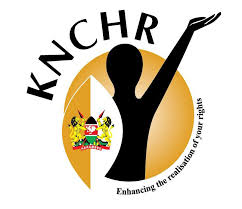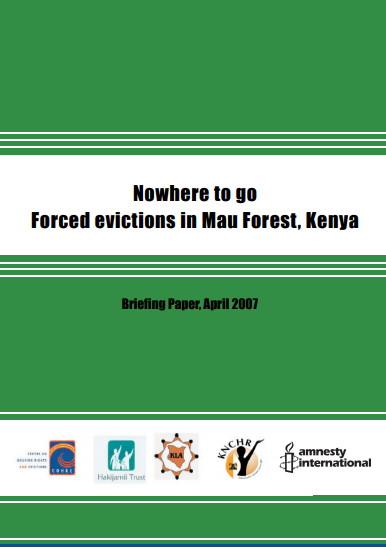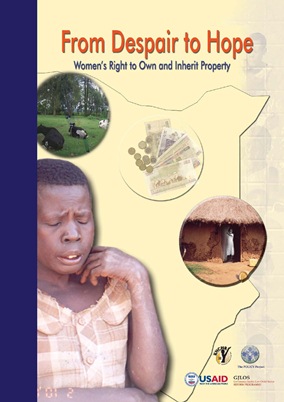Location
Background
The Kenya National Commission on Human Rights (KNCHR) is an autonomous national Human rights institution established under article 59 of the Constitution of Kenya 2010 with the core mandate of furthering the promotion and protection of human rights in Kenya. It is a successor to the body of the same name established by an earlier Act of Parliament in 2002, that later became operational in July 2003.The KNCHR succeeded the Standing Committee on Human Rights established in 1996 through presidential decree. The Commission is established in accordance with the United Nations approved Paris Principles. The management team consists of five Commissioners and the Secretariat.
International status
The operations of the KNCHR are guided by the United Nations-approved Paris Principles on the establishment and functioning of independent national human rights institutions. The National Commission has been accredited by the International Co-ordinating Committee of National Human Rights Institutions (ICC), which is based in Geneva at the Office of the High Commissioner for Human Rights, as an ‘A status’ institution which means that the Commission has been found to be in compliance with the Principles. The KNCHR is a member of the Network of African National Human Rights Institutions (NANHRI), the ICC's regional grouping for Africa.
Mandate
The Commission plays two key broad mandates;
It acts as a watch-dog over the Government in the area of human rights.
Provides key leadership in moving the country towards a human rights state.
The main goal of KNCHR is to investigate and provide redress for human rights violations, to research and monitor the compliance of human rights norms and standards, to conduct human rights education, to facilitate training, campaigns and advocacy on human rights as well as collaborate with other stakeholders in Kenya.
Vision
A society that upholds human rights for all.
Mission
To protect,promote and monitor the respect for human rights in Kenya through law,policy and practice.
Members:
Resources
Displaying 6 - 10 of 10Nowhere to go Forced evictions in Mau Forest, Kenya
Between 2004 and 2006, a massive programme of evictions has been carried out in forest areas of Kenya. Houses, schools and health centres have been destroyed, and many have been rendered homeless. Estimates indicate that in six forests alone, more than a hundred thousand persons were forcibly evicted between July 2004 and June 2006. Evictions in a number of forest areas are reportedly continuing and humanitarian groups are expressing growing concerns about the ongoing increase in internally displaced persons from forest areas in Kenya.
Unjust Enrichment. The Making of Land Grabbing Millionaires. Abetting Impunity: the other side of the Ndung’u Report on Illegal and Irregular Allocations of Public Land
Part of a series produced by KNCHR and KLA to enhance the protection of public resources and help the public demand greater accountability and transparency. Focuses on the plunder of Karura, Ngong Road, and Kiptagich Forests. Suggests a loss of public resources of Ksh.18.47bn. Offers an account of the human rights dimensions of land grabbing. Attempts to unmask those who did particularly well from the plunder. Urges the recovery of all monies unjustly got through illegal allocation of public land.
Unjust Enrichment. The Making of Land Grabbing Millionaires. Abetting Impunity: the other side of the Ndung’u Report on Illegal and Irregular Allocations of Public Land
Part of a series produced by KNCHR and KLA to enhance the protection of public resources and help the public demand greater accountability and transparency. Focuses on the plunder of Karura, Ngong Road, and Kiptagich Forests. Suggests a loss of public resources of Ksh.18.47bn. Offers an account of the human rights dimensions of land grabbing. Attempts to unmask those who did particularly well from the plunder. Urges the recovery of all monies unjustly got through illegal allocation of public land.
Unjust Enrichment. The Making of Land Grabbing Millionaires. Abetting Impunity: the other side of the Ndung’u Report on Illegal and Irregular Allocations of Public Land
Part of a series produced by KNCHR and KLA to enhance the protection of public resources and help the public demand greater accountability and transparency. Focuses on the plunder of Karura, Ngong Road, and Kiptagich Forests. Suggests a loss of public resources of Ksh.18.47bn. Offers an account of the human rights dimensions of land grabbing. Attempts to unmask those who did particularly well from the plunder. Urges the recovery of all monies unjustly got through illegal allocation of public land.
From Despair to Hope: Women's Right to Own and Inherit Property
The right to own and inherit property is a crosscutting right that traverses the realm of civil, political, economic, social and cultural rights. This right is central to the true empowerment of everyone in society (men, women, boys and girls) and is a key developmental right. It is the common right to all societies and cultures. It is central to securing the dignity of all members of the society.




